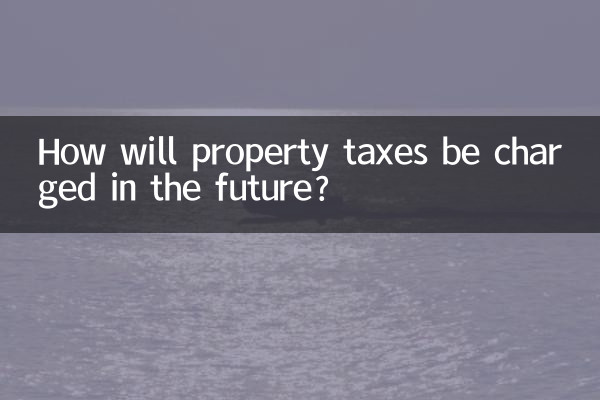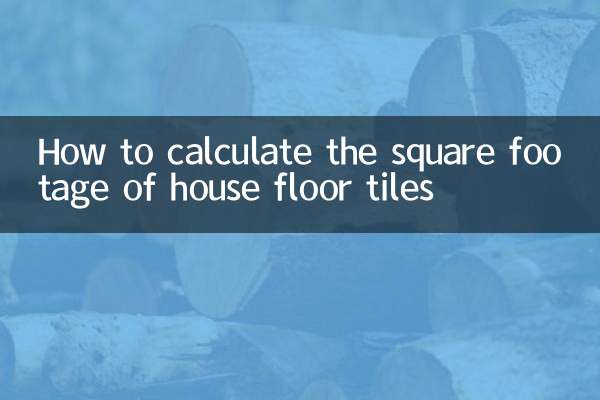How will property taxes be charged in the future? Hot spot analysis and structured interpretation of the entire network in the past 10 days
Recently, the discussion about property tax collection has become a hot topic again. Combining the hot content of the entire network in the past 10 days, this article will use structured data to present possible future property tax charging methods from four aspects: policy trends, charging models, differences in pilot cities, and public response.
1. Policy trends: The legislative process of property tax is accelerating

According to public information from the Ministry of Finance and the State Administration of Taxation, property tax legislation has entered the research stage, and it is expected that the scope of the pilot will be further expanded around 2025. The following are the key time points officially mentioned in the past 10 days:
| Date | event | Source |
|---|---|---|
| 2023-11-05 | The Ministry of Finance stated that it will “steadily advance real estate tax legislation” | Ministry of Finance official website |
| 2023-11-08 | The State Council meeting mentioned “improving the local tax system” | Xinhua News Agency |
| 2023-11-12 | Shanghai and Chongqing pilot policy evaluation reports released | State Administration of Taxation |
2. Forecast of charging model: levy based on area or valuation?
A comparison of the two charging models currently under mainstream discussion and their advantages and disadvantages is as follows:
| mode | Calculation formula | Advantages | Disadvantages |
|---|---|---|---|
| Levy based on area | Tax = area × unit price (such as 10 yuan/㎡) | Simple operation and easy to execute | Failure to consider location differences and insufficient fairness |
| Levy based on valuation | Tax = Appraisal price × tax rate (such as 0.5%-1.2%) | Closer to market value | Assessment costs are high and controversial |
3. Differences in pilot cities: Shanghai VS Chongqing
There are significant differences in the policies of the existing pilot cities, which may affect future national promotion plans:
| city | Collection objects | tax rate | Conditions for exemption |
|---|---|---|---|
| Shanghai | Newly purchased second suite or above | 0.4%-0.6% | Those below 60㎡ per capita are exempt from tax |
| Chongqing | High-end residences and single-family villas | 0.5%-1.2% | Existing houses below 180㎡ are exempt from tax |
4. Public reaction: Support and concern coexist
According to social media hot word cloud analysis, the main opinions of the public are as follows:
| opinion classification | Proportion | Typical comments |
|---|---|---|
| Support the regulation of housing prices | 42% | “Property tax can combat real estate speculation, and it should have been collected long ago.” |
| Worry about passing on costs | 35% | “The landlord may increase the rent, but in the end it is the tenant who pays the bill.” |
| Questioning the fairness of assessments | 23% | "How do you set the standards for old people and luxurious people?" |
5. Future trends: differentiated collection may become mainstream
Based on information from all parties, future property taxes may exhibit the following characteristics:
1.tiered tax rates: Levy based on the number of housing units or value;
2.local autonomy: Allow provinces and cities to adjust tax rates within the central framework;
3.exemption clause: First-time homeowners and low-income groups may be exempted.
The final plan needs to balance fiscal revenue and people's livelihood pressure, and specific implementation details remain to be seen.
(The full text is about 850 words in total)

check the details

check the details